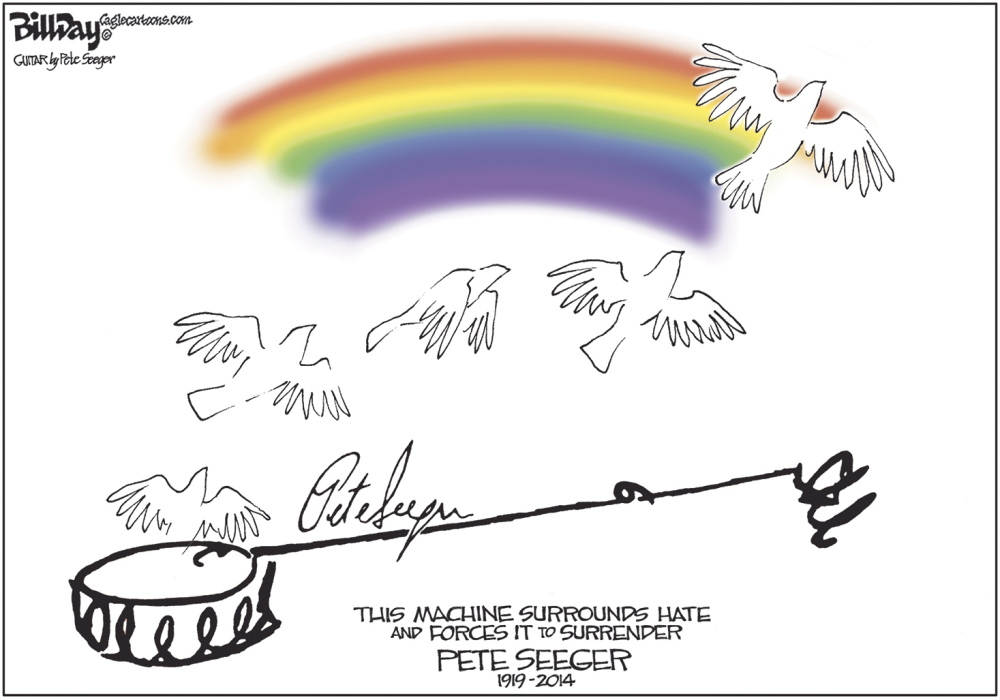Fifty years ago, school rooms, churches and countless open-air assemblies around the country resounded with words arranged and adapted by Pete Seeger.
“We shall overcome, we shall overcome …”
The song became the anthem of the civil rights movement. It united black and white. It carried emotional weight. It moved a generation.
And to think of it, the song was only one of many that Seeger, who died Monday night at 94, made famous, and invited others to sing along, in a life devoted to social and political change.
I first heard Seeger in concert in 1965, in Boston, around the time I was learning to play the guitar at the height of the folk music revival he helped to spread.
To many of us, he was an avuncular figure, who spoke truth to power and gave voice to peace and community at a time of high anxieties. He was past the nastiness of the red-baiting years of the 1950s and early ’60s and his conviction (later overturned) for refusing to testify before a congressional witch hunt.
“I am not going to answer any questions as to my association, my philosophical or religious beliefs or my political beliefs, or how I voted in any election, or any of these private affairs,” he announced to the panel. “I think these are very improper questions for any American to be asked, especially under such compulsion as this.”
He was a consistent resistor of injustice. With his pal and fellow singer/songwriter Woody Guthrie, he sang out for equality and worker rights. He sang out against the Vietnam War (“Where Have All the Flowers Gone?”). He sang out against environmental degradation, especially along his beloved Hudson River Valley in New York. As recently as 2011 he marched and sang with Wall Street occupiers (“We Shall Overcome,” of course).
“He saw music as a tool for change,” Seeger’s grandson, Kitama Cahill Jackson, told the BBC early Tuesday. “That hadn’t happened before.”
Seeger championed folk music traditions. He recycled traditional and gospel songs. He was a master of the five-string banjo. He was none too pleased when Bob Dylan electrified what had been an acoustic-instrument approach to folk.
He once had the brilliant idea to adapt passages of the Book of Ecclesiastes into a powerful lyric: “Turn! Turn! Turn!” (“To everything there is a season …”). I still get chills when I listen to the Byrds’ version (yes, electrified) of the song.
Whether they know it or not, Seeger’s legacy still rings in the songs that young people sing around the world on behalf of peace and justice and overcoming.
Steve Paul is a columnist for the Kansas City Star. Email at paul@kcstar.com. This column was distributed by MCT Information Services.
Send questions/comments to the editors.




Success. Please wait for the page to reload. If the page does not reload within 5 seconds, please refresh the page.
Enter your email and password to access comments.
Hi, to comment on stories you must . This profile is in addition to your subscription and website login.
Already have a commenting profile? .
Invalid username/password.
Please check your email to confirm and complete your registration.
Only subscribers are eligible to post comments. Please subscribe or login first for digital access. Here’s why.
Use the form below to reset your password. When you've submitted your account email, we will send an email with a reset code.